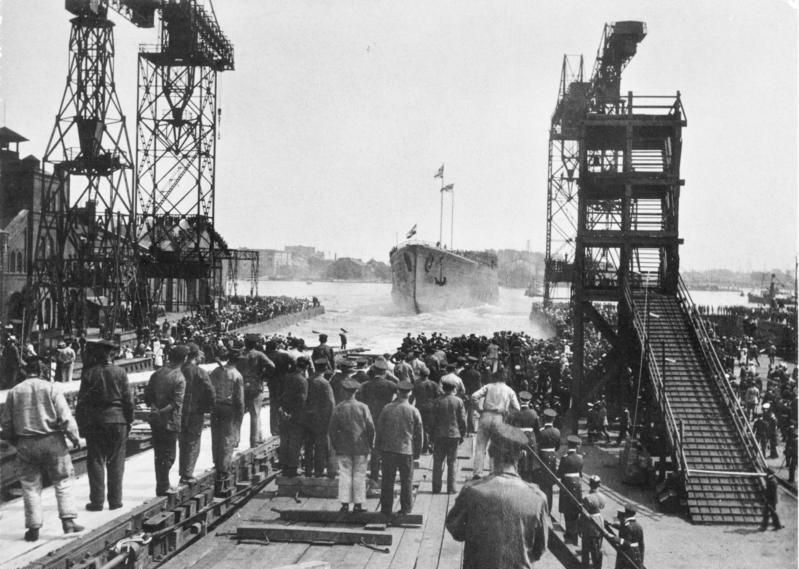SMS Hindenburg
ヒンデンブルク (巡洋戦艦)

SMS Hindenburg was a battlecruiser of the German Kaiserliche Marine (Imperial Navy), the third ship of the Derfflinger class, built to a slightly modified design. She carried the same battery of eight 30.5 cm (12 in) guns, but in improved turrets that allowed them to fire further. The ship was also slightly larger and faster than her two sister ships. She was named in honor of Field Marshal Paul von Hindenburg, the victor of the Battle of Tannenberg and the Battle of the Masurian Lakes, as well as Supreme Commander of the German armies from 1916. The ship was the last capital ship of any type built for the German navy during World War I. Hindenburg was commissioned late in the war and as a result had a brief service career. The ship took part in a handful of short fleet operations as the flagship of I Scouting Group in 1917–18, though saw no major action. The proposed final sortie of the fleet in the last weeks of the war came to nothing when the crews of the capital ships mutinied. Hindenburg was subsequently interned with the rest of the German battlecruisers at Scapa Flow in November 1918. Rear Admiral Ludwig von Reuter ordered the ships be scuttled on 21 June 1919. Hindenburg was the last of the ships to sink. She was raised in 1930 and broken up for scrap over the following two years.
